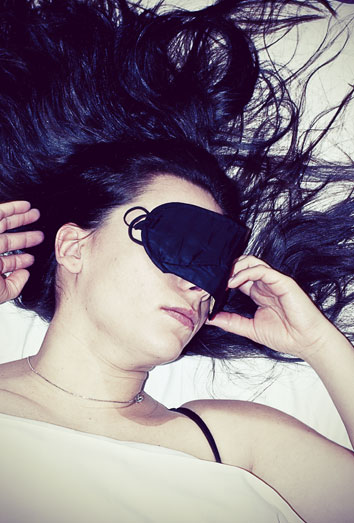Strategies for Quality Sleep: Are you tired of tossing and turning all night, unable to get a good night’s sleep? Insomnia and other sleep issues can significantly impact your quality of life. In this article, we will explore 10 effective strategies to help you achieve better sleep and combat insomnia. By implementing these techniques, you can finally get the restful and rejuvenating sleep you deserve.
Table of Contents
Establishing a Sleep Routine
Having a consistent sleep routine is essential for improving the quality of your sleep and combatting insomnia and other sleep issues. Here are some strategies to help you establish a healthy sleep routine:
Set a Consistent Bedtime
One of the most important aspects of a sleep routine is setting a consistent bedtime. Going to bed at the same time every night helps regulate your body’s internal clock, making it easier to fall asleep and wake up at the desired times. Try to choose a bedtime that allows you to get at least 7-9 hours of sleep each night.
Create a Relaxing Bedtime Ritual
Developing a relaxing bedtime ritual can signal to your body that it’s time to wind down and prepare for sleep. This could include activities such as reading a book, taking a warm bath, practicing relaxation techniques like deep breathing or meditation, or listening to calming music. Find activities that help you relax and make them a regular part of your bedtime routine.
Limit Exposure to Screens Before Bed
The blue light emitted by screens such as phones, tablets, and computers can interfere with your body’s production of melatonin, a hormone that regulates sleep. To improve your sleep quality, try to limit your exposure to screens at least an hour before bedtime. Instead, opt for activities that are less stimulating, such as reading a book or listening to music. By reducing screen time before bed, you can help your body relax and prepare for a restful night’s sleep.
Creating a Sleep-Inducing Environment
When it comes to combating insomnia and sleep issues, creating a sleep-inducing environment is crucial. By optimizing your bedroom conditions, investing in a comfortable mattress and pillows, and controlling noise and light levels, you can improve the quality of your sleep significantly.
Optimize Bedroom Conditions
One of the first steps to creating a sleep-inducing environment is to optimize your bedroom conditions. This includes keeping your bedroom cool, dark, and quiet. Make sure to remove any distractions such as electronics or clutter that may disrupt your sleep. Additionally, consider using blackout curtains or a white noise machine to block out any unwanted light or noise.
Invest in a Comfortable Mattress and Pillows
Another important factor in creating a sleep-inducing environment is investing in a comfortable mattress and pillows. A supportive mattress and pillows that suit your sleeping preferences can make a world of difference in your quality of sleep. Be sure to replace your mattress and pillows regularly to ensure they continue to provide the support you need.
Control Noise and Light Levels
Controlling noise and light levels in your bedroom can greatly impact your ability to fall asleep and stay asleep. Consider using earplugs or a white noise machine to block out any disruptive sounds. Additionally, try to keep your bedroom as dark as possible by using blackout curtains or an eye mask. By controlling noise and light levels, you can create a peaceful and calming environment that promotes restful sleep.
Incorporating Healthy Habits
Having healthy habits is essential for quality sleep and combating insomnia and sleep issues. Here are some strategies to incorporate into your daily routine:
Exercise Regularly but Not Before Bed
Regular physical activity can help improve the quality of your sleep. However, it is important to avoid vigorous exercise close to bedtime as it can stimulate your body and mind, making it harder to fall asleep. Try to schedule your workout sessions earlier in the day to reap the benefits of better sleep.
Watch Your Diet and Avoid Stimulants
What you eat and drink can have a significant impact on your sleep quality. Avoid consuming stimulants such as caffeine and nicotine close to bedtime, as they can disrupt your sleep patterns. Instead, opt for a light and balanced meal for dinner and avoid heavy, rich, or spicy foods that can cause indigestion and discomfort.
Manage Stress and Anxiety
Stress and anxiety can wreak havoc on your sleep quality. Practice relaxation techniques such as deep breathing, meditation, or yoga to calm your mind and body before bedtime. Establishing a bedtime routine that includes activities to help you unwind can also be beneficial in managing stress and promoting better sleep.
Utilizing Relaxation Techniques
When it comes to combatting insomnia and sleep issues, incorporating relaxation techniques into your bedtime routine can be extremely beneficial. Here are a few strategies to consider:
Practice Meditation or Deep Breathing
Meditation and deep breathing exercises can help calm your mind and relax your body before bedtime. By focusing on your breath and clearing your mind of any racing thoughts, you can create a sense of peace and tranquility that can promote better sleep.
Try Progressive Muscle Relaxation
Progressive muscle relaxation involves tensing and then releasing each muscle group in your body, starting from your toes and working your way up to your head. This technique can help release tension and promote a state of relaxation that can make it easier to fall asleep.
Explore Aromatherapy or Herbal Remedies
Aromatherapy involves using essential oils or scents to create a relaxing environment that can promote better sleep. Lavender, chamomile, and valerian root are all popular choices for promoting relaxation and improving sleep quality. Consider using a diffuser or pillow spray to incorporate these scents into your bedtime routine. Additionally, herbal remedies such as chamomile tea or valerian root supplements can help promote relaxation and improve sleep quality.
By incorporating these relaxation techniques into your bedtime routine, you can create a calming environment that promotes quality sleep and helps combat insomnia and sleep issues.
Implementing Cognitive Behavioral Therapy for Insomnia (CBT-I)
Cognitive Behavioral Therapy for Insomnia (CBT-I) is a proven effective treatment for insomnia and sleep issues. It focuses on changing negative thoughts and behaviors that may be contributing to sleep problems. By addressing these underlying issues, individuals can improve their sleep quality and duration.
Addressing Negative Thoughts and Behaviors
Negative thoughts and behaviors, such as worrying about not being able to fall asleep or engaging in activities that disrupt sleep, can significantly impact sleep quality. Through CBT-I, individuals can learn to identify and challenge these negative thoughts, as well as develop healthier sleep habits to promote better sleep.
Establishing a Sleep Restriction Plan
A key component of CBT-I is establishing a sleep restriction plan, which involves limiting the amount of time spent in bed to match the individual’s actual sleep time. This helps to consolidate sleep and improve sleep efficiency. Over time, the sleep window can be gradually expanded as sleep improves.
Improving Sleep Environment and Habits
Creating a conducive sleep environment is essential for quality sleep. This includes making sure the bedroom is dark, quiet, and at a comfortable temperature. Additionally, establishing a bedtime routine and avoiding stimulants like caffeine and electronics before bed can also help promote better sleep habits.
Final Thoughts:
Implementing the strategies discussed in this article can greatly improve the quality of your sleep and help combat insomnia and other sleep issues. By creating a consistent bedtime routine, optimizing your sleep environment, and practicing relaxation techniques, you can set yourself up for a more restful and rejuvenating night’s sleep. Remember that addressing any underlying health conditions or seeking professional help may also be necessary in some cases. Prioritizing quality sleep is essential for overall health and well-being, so make sure to take the necessary steps to ensure you are getting the rest you need.
FAQs:
What are some common causes of insomnia?
Insomnia can be triggered by various factors such as stress, anxiety, poor sleep habits, medical conditions, medications, and environmental factors.
How can I improve my sleep hygiene?
You can enhance your sleep hygiene by maintaining a consistent sleep schedule, creating a relaxing bedtime routine, ensuring a comfortable sleep environment, and avoiding stimulants like caffeine and electronics before bed.
Are there any natural remedies for insomnia?
Yes, several natural remedies like herbal teas, relaxation techniques (such as meditation and deep breathing exercises), and aromatherapy can help promote better sleep.
What role does diet play in sleep quality?
Diet plays a significant role in sleep quality. Consuming a balanced diet, avoiding heavy meals close to bedtime, and limiting caffeine and alcohol intake can positively impact sleep.
How can I manage stress and anxiety to improve sleep?
Managing stress and anxiety through techniques like mindfulness, yoga, and cognitive-behavioral therapy can help alleviate sleep disturbances caused by psychological factors.
What is the importance of physical activity for sleep quality?
Regular physical activity can improve sleep quality by promoting relaxation, reducing stress, and regulating circadian rhythms. However, it’s essential to avoid vigorous exercise close to bedtime.
Should I limit screen time before bed?
Yes, exposure to screens emitting blue light before bed can disrupt your sleep-wake cycle. It’s recommended to limit screen time at least an hour before bedtime or use blue light filters on devices.
How can I create a sleep-conducive environment?
You can create a sleep-conducive environment by keeping your bedroom cool, dark, and quiet, investing in a comfortable mattress and pillows, and minimizing noise and disruptions during sleep.
Are there any relaxation techniques I can try to improve sleep?
Yes, relaxation techniques such as progressive muscle relaxation, guided imagery, and listening to calming music or nature sounds can help induce sleep and improve sleep quality.
When should I seek professional help for insomnia?
If insomnia persists despite trying self-help strategies, it’s essential to consult a healthcare professional. They can help identify underlying causes and recommend appropriate treatment options, including therapy or medication, if necessary.






